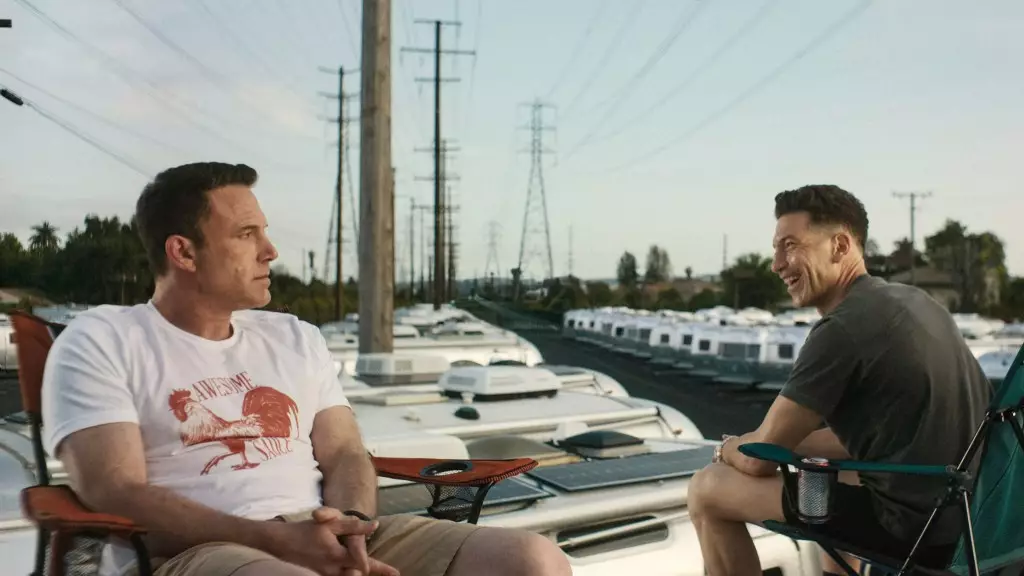The discourse surrounding neurodivergent representation in media is as crucial as ever. With so much at stake, the casting choices and narrative frameworks deployed in films can deeply influence societal perspectives on autism and similar conditions. The sequel to “The Accountant,” directed by Gavin O’Connor, brings this issue back into the spotlight, especially given that Ben Affleck reprises his role as Christian Wolff, a character on the autism spectrum. Unfortunately, the film’s approach may serve to reinforce outdated stereotypes rather than uplift and accurately represent the neurodivergent community.
As the debate unfolds, it’s worth examining O’Connor’s enthusiasm for championing the neurodivergent community through this sequel while juxtaposing it against the perception of Affleck’s portrayal. The criticism regarding Affleck’s casting raises a pertinent question: Why is it that neurotypical actors often take on roles intended for neurodivergent characters? While O’Connor claims to have sought the insights of experts and worked extensively with individuals on the spectrum, one cannot help but wonder whether these efforts are sufficient to transcend the limitations imposed by All-American casting conventions.
Robert F. Kennedy Jr.’s Controversial Remarks
Adding fuel to this fire is Robert F. Kennedy Jr.’s profoundly misguided rhetoric regarding autism. By framing autism as a “preventable disease” that “destroys” families, he contributes to a toxic narrative that unfairly vilifies the very existence of individuals on the spectrum. His comments are not merely problematic; they are dangerous, as they perpetuate stigma, reinforce societal barriers, and serve to demonize a community already grappling with misunderstanding and marginalization.
O’Connor’s critical response to Kennedy highlights an awareness of the detrimental impact such statements can have, particularly when influential figures wield the media’s microphone. Yet, the irony is palpable. Here we have a director aiming to illustrate a nuanced character struggling with autism at a time when misinformation flourishes unchecked in the public arena. If the goal is to humanize characters like Christian Wolff, wouldn’t it be wiser to empower actors with authentic experiences instead of leaning on traditionally prominent figures like Affleck, who may not resonate with the lived experiences of those on the spectrum?
The Risk of Reinforcing Stereotypes
Even as O’Connor aims to dispel stereotypes through dialogue with neurodivergent individuals, the portrayal of Christian Wolff risks becoming yet another caricature that relies on comedic tropes rather than authentic narrative depth. With critiques pointing out Affleck’s potential transformation of his character into a punchline, it raises concern regarding whether the film merely sensationalizes autism rather than providing a platform for dignity and understanding.
In an era where representation matters more than ever, filmmakers bear a moral responsibility to lead with intention and sensitivity. It is essential that the narratives we amplify in popular culture not only feature neurodivergent characters but also ensure those characters are played by actors who can bring firsthand experiences to the role. The complexities of autism cannot be distilled into humor or sensationalism, and filmmakers need to step up to change this narrative.
True Empowerment Through Genuine Representation
Moreover, the casting of neurodivergent actress Allison Robertson as Justine—the character depicted as an ally of Wolff—signals a hopeful shift. This opening to include more authentic voices is a testament to the movement advocating for representation within a larger framework of inclusivity. Nonetheless, it begs the question: should the storytelling surrounding characters on the spectrum hinge primarily on neurotypical portrayals?
Perhaps the legacy of “The Accountant 2” could have been drastically different had the filmmaking process engaged more deeply with the ethos of authenticity rather than relying on established star power alone. After all, framing neurodivergent experiences through a lens of compassion demands not only accurate portrayals but also the active involvement of the individuals who live that reality daily.
Art and media have an intrinsic power to shape societal beliefs and attitudes. The challenge lies in channeling that power responsibly. Instead of reinforcing stereotypes under the guise of representation, it is imperative that filmmakers ensure their narratives are enriching, respectful, and real—through empowered decisions that reflect the diversity of human experience.


Leave a Reply